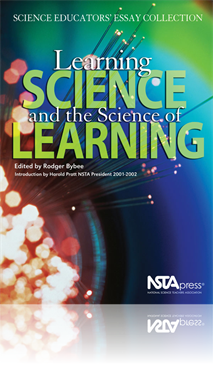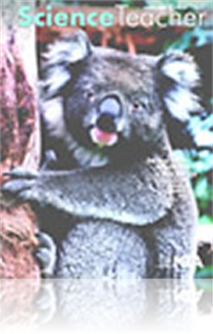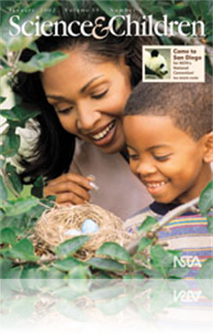All Resources
NSTA Press Book
Learning Science and the Science of Learning: Science Educators' Essay Collection
Sure, you teach science. But do your students really learn it? Students of all ages will absorb more if you adapt the way you teach to the way they learn. That's the message of this thoughtful collection of 12 essays by noted science teachers. Based ...
Journal Article
Students sample air at their school and generate ideas about how to classify the microorganisms they observe. This investigative, hands-on laboratory activity allows students to gain an awareness of science from a personal perspective and share their...
Journal Article
Intelligent Teaching: Using the theory of multiple intelligences in the inquiry classroom
Incorporating the theory of multiple intelligences (MI) into the science classroom can create a better learning environment for all students. In this article the authors discuss the MI theory and offer suggestions for incorporating it into inquiry-ba...
Journal Article
Pulse Rate Research: Students follow the steps of inquiry to compare carotid and artery pulse rates
This pulse rate study was inspired by observations about how people take their pulses. It exemplifies how the scientific inquiry process can be demonstrated in the classroom. ...
Journal Article
Do Standards Matter? How the quality of state standards relate to evolution instruction
Although most states include evolution instruction in their standards, the teaching of evolution in public schools remains problematic. To create successful science education programs, we must recruit and reward educators who effectively teach this b...
Journal Article
Scope on the Skies: Peeking at the planets
This column focuses on astronomy throughout the year. In this month’s issue learn more about the exciting things happening in our solar system....
Journal Article
Taking Science Dialogue by Storm
One teacher examines classroom discourse through a unit on tornadoes and natural catastrophes....
Journal Article
Educators in Mexico respond to the need for integrating science into other disciplines with a guided-inquiry curriculum module called Adventures on a Deserted Island. The program engages elementary students in an imaginary trip to a deserted island w...
Journal Article
Particle Physics Primer: Explaining the Standard Model of matter
For the past 35 years, scientists have developed a more basic model of the universe—the Standard Model—that specifically addresses the age-old question, "What is the world made of?" The Standard Model of matter provides the most current understan...
Journal Article
For the classroom teacher, the potato can be an affordable "root of endless possibilities." Therefore, when helping students prepare for yearly participation in the Invent America program (an annual nationwide invention competition for K-12 students)...
Journal Article
Commentary: Toxins and Society
An opinion piece about the presence of chemicals in society and the safety and health concens. Learning about biological or chemical agents should educate students on the effects of these materials. This lesson leads students through the risk-assessm...






